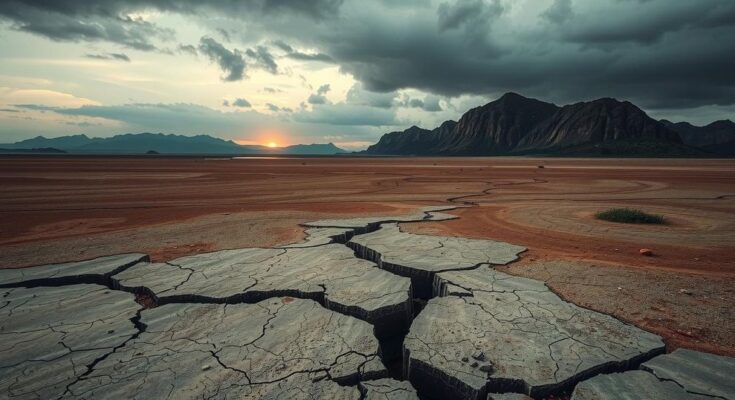The conflict in the eastern Democratic Republic of Congo, particularly around the city of Goma, is a result of historical ethnic tensions and competition for mineral wealth. The M23 rebel group, predominantly formed by ethnic Tutsis, has taken control of Goma amid accusations of support from Rwanda. The unrest, rooted in the aftermath of the 1994 Rwandan genocide, continues to threaten regional stability, with ongoing violence and complex geopolitical implications.
The eastern region of the Democratic Republic of Congo has been embroiled in conflict for over three decades, primarily due to competition for control over its rich mineral resources. This instability, exacerbated by the legacies of the 1994 Rwandan genocide, has led to the involvement of numerous armed groups and neighboring nations, culminating in what has been termed Africa’s World Wars, which resulted in millions of deaths in the 1990s.
Currently, the M23 rebel group has made significant advances and reportedly seized control of Goma, a critical city in the eastern DRC. Goma’s strategic location, bordering Rwanda and situated near mineral-rich mining regions, has made it a focal point in the ongoing conflict. Although the rebels claim control of the city, the Congolese government asserts that its troops maintain positions of importance.
The M23 group, consisting primarily of ethnic Tutsis, asserts it took up arms to defend the minority rights of Tutsis in the DRC. The group derives its name from a peace agreement signed on March 23, 2009, as previous accords to end hostilities have not been honored. The M23 briefly captured Goma in 2012 but was subsequently defeated and forced to integrate into the Congolese army, only to rearm in 2021 after claiming that the government failed to uphold its end of the agreement by ensuring Tutsi safety.
Rwanda’s involvement in this conflict has long been a contentious issue. Despite the Rwandan government denying direct support for the M23, numerous UN reports have implicated it in providing support and possibly command to the rebels since 2012. As tension escalates, Rwanda has expressed that the unrest near its borders poses a serious threat to its security, implying that the Congolese government bears responsibility for the ongoing violence.
The roots of the current conflict can be traced back to the aftermath of the Rwandan genocide, which resulted in the mass killing of Tutsis and the subsequent displacement of one million Hutus into what is now the DRC. This led to heightened ethnic tensions, particularly affecting the Banyamulenge Tutsi community. Rwanda’s historical military incursions into the DRC aimed to target perpetrators of the genocide, adding complexity to the ongoing ethnic and political strife.
The Democratic Forces for the Liberation of Rwanda (FDLR), a Hutu group linked to the genocide, remains active in the eastern DRC, which Rwanda views as a direct threat. Rwanda’s concerns center on ensuring the safety of ethnic Tutsis in the DRC, while also seeking to eliminate threats posed by groups like the FDLR. However, the accusation that Rwanda exploits the conflict for access to mineral wealth in the DRC continues to be a point of contention.
The longstanding conflict in eastern DRC is heavily influenced by historical and ethnic dynamics, particularly the aftermath of the Rwandan genocide in 1994. The genocide led to significant demographic changes and heightened ethnic rivalries, with Rwandan Hutus fleeing to the DRC, exacerbating tensions with local Tutsi communities. For over three decades, various armed militia groups have vied for control, with many linked to regional powers, notably Rwanda, complicating the geopolitical landscape of the region significantly.
The conflict in eastern DRC illustrates a complex interplay of historical grievances, ethnic tensions, and struggles for control over natural resources. The resurgence of the M23 rebel group underscores the challenges of peace and stability in the region, exacerbated by Rwanda’s historical ties and interests in the conflict. Ultimately, meaningful dialogue and comprehensive peace agreements seem essential for addressing the root causes and achieving lasting tranquility in this troubled area.
Original Source: www.bbc.com




